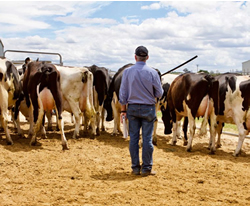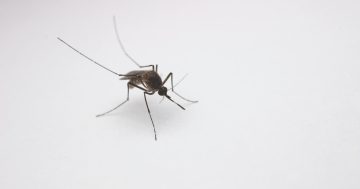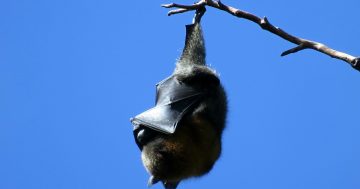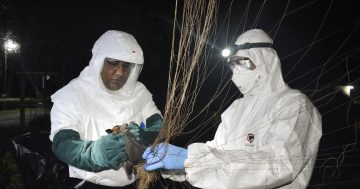 NSW Health is urging residents in regional and rural NSW to have themselves vaccinated and take other steps to guard against Q fever, which it says is likely to increase due to the drought and high winds.
NSW Health is urging residents in regional and rural NSW to have themselves vaccinated and take other steps to guard against Q fever, which it says is likely to increase due to the drought and high winds.
Director of Communicable Diseases at NSW Health, Dr Vicky Sheppeard said Q fever was a serious bacterial infection caused by inhaling dust particles contaminated by infected animal secretions.
Dr Sheppeard said Q fever did not just affect farmers or people who dealt with livestock.
“The infection is carried by cattle, goats, sheep and other domesticated and wild animals, so people who work on the land are most at risk,” Dr Sheppeard said.
“However, the bacteria can easily be carried on farm tools or work clothes and brought into the family home.”
She said there had been 141 confirmed cases of Q fever notified to NSW Health so far this year, with an increase in the number of cases in the Western, Southern and Hunter New England regions.
“This reflects the increase seen across Australia over the past several years and the emergence of the disease in groups who do not regularly work on farms or abattoirs, such as Aboriginal people, itinerant workers and contractors.”
Dr Sheppeard said Q fever symptoms often appeared like severe flu, with high fevers and chills, sweating, severe headaches, muscle and joint pains and extreme fatigue.
She said a single dose vaccine is recommended for people who worked in high risk occupations and anyone over 15 years who had the potential to be exposed to Q fever.
She advised precautions to be taken, including washing hands and dirty clothing after contact with animals; wearing protective clothing including a properly fitted mask; and properly washing animal urine and other body fluids from equipment and surface.
Dr Sheppeard said NSW Health had an online learning module to help GPs diagnose Q fever and vaccinate susceptible people.
Further information about Q fever is available from NSW Health at this PS News link.











